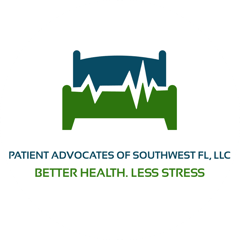Others Are Making Some of Your Health Care Decisions
Posted on September 6, 2022
Each of us is in control for the majority (greater than 90%) of personal healthcare decisions needing to be made. What about the remaining percentage?
Each of us is in control for the majority (greater than 90%) of personal healthcare decisions needing to be made. What about the remaining percentage?
Let’s begin with the obvious, the being in control part.
As responsible adults, we’re used to being in control of our lives. With the confidence to make our own decisions, we successfully navigate through the ins and outs of our day’s – and in some instances – sometimes seemingly on auto piolet. Particularly when it comes to management of our medical care.
Back in the day, health care was a “one-way street,” doctors prescribed care and “good” patients followed directions. Today’s relationship with their physician is mostly like the office visit - in and out.
The #1-character trait of a person who is extremely effective in the management of their healthcare is self-reliance – possessing the ability to trust and rely on one’s instinct and resources rather than depend on those of others. Even when a change in health status requires unexpected diagnostic tests, scans or other studies, reveal an unexpected and unwelcome diagnosis.
If you’ve done your planning – serious conversations:
· One with your doctor to establish your Do Not Revive (DNR) or Do Not Intubate (DNI) expectations.
· Another making your wishes and expectations known to a beloved family member or other trusted person and have put your intentions in writing, through advance directives (which includes a living will) and designated power of attorney
· Other documents which may be required by the state you reside in, decisions regarding your healthcare expectations will be honored.
Then there is that small percentage of those instances where there is no control over healthcare decisions made on your, mine, our behalf. Few are aware health care decisions are being made on your behalf by your insurance company.
No doubt you’ve heard of or possibly have first-hand experience when your insurance company is not going to pay for physician recommended surgery. Likewise at the pharmacy. Have you ever been told the pharmacist is unable to give you the medication your doctor prescribed - even when it is listed as being included on your formulary?
Even though insurers are not involved in your direct care or privy to why your doctor prescribed one medicine over another, many try to limit the use of certain prescriptions to control health care costs and steer patients to medicines insurers prefer. Sometimes, this can mean unnecessary barriers between you and the medicine you need.
Your health insurance company doesn’t want to pay for any more treatment than they must, as required by contract or standard of care.
The #1 advocate, self or care partner, rule in healthcare: If you don’t know what something means ALWAYS ask!
Keep asking questions until you understand what you are hearing or reading.
With extensive knowledge of, and experience of the good and not-so-good aspects of the healthcare system, a professional patient advocate is focused on guiding each patient/client to seek then verify (the often confusing) information needed to make objective and thorough decisions. This includes, but is not limited to:
1. Asking the medical questions that need to be asked.
2. Ensure the client is getting the best possible care.
3. Confirm coverage of services with your pharmacy.
4. Coordinating care among physicians, specialists, providers and other services.



